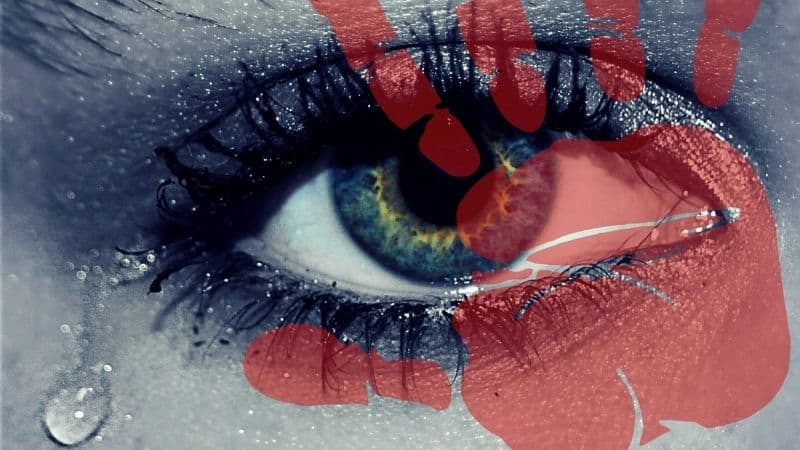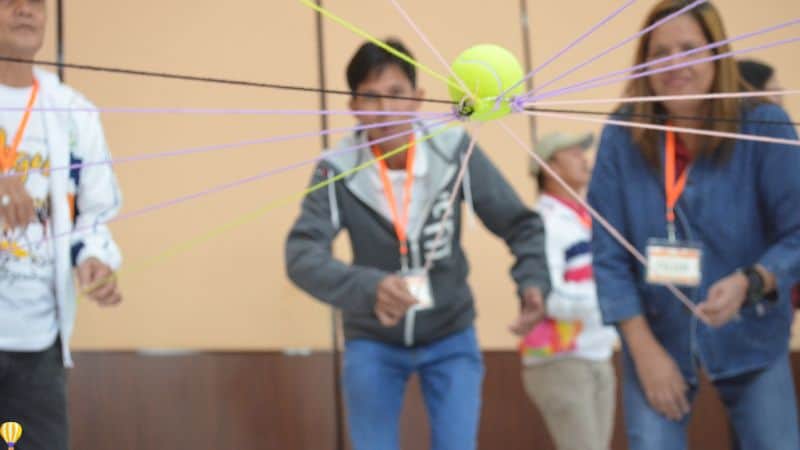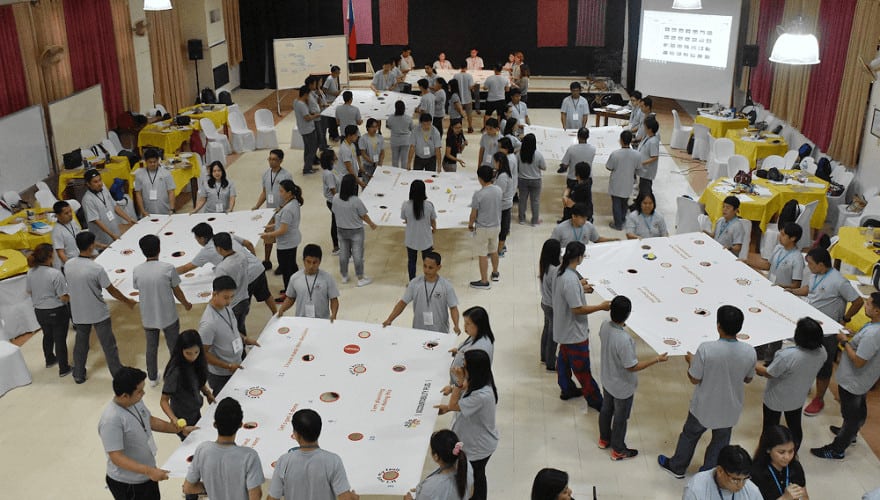Ask any Filipino—diskarte or diploma? You’ll spark a debate. One side swears by the street smarts that get things done now. The other side says without a degree, you’ll never break into the real game. It’s the kind of argument that’s been going around for decades.
Why? Because both sides have a point.
Diskarte is what makes us resourceful, able to navigate chaos, and turn nothing into something. A diploma, on the other hand, opens doors that diskarte can’t always reach. It’s the long game, the one that takes time, but pays off in the end.
But maybe—just maybe—there’s more to this debate than meets the eye.
Diskarte – How Filipinos Turn Everyday Problems Into Opportunities
Ever tried riding the MRT during rush hour? That’s where diskarte comes alive.
Filipinos are masters of diskarte—that innate ability to make things work despite less-than-ideal circumstances. It’s not just problem-solving; it’s an art form. Whether it’s squeezing onto an already-packed jeepney or launching a sari-sari store out of their garage, Filipinos find ways to respond to what’s right in front of them. We don’t wait for things to be perfect; we roll with the punches, and that’s where our strength lies.
Diskarte is about speed and flexibility. The short game. It’s knowing that the opportunity doesn’t always come dressed in a suit—it might show up in flip-flops and a wrinkled T-shirt, but that doesn’t make it any less valuable. In a world that loves diplomas and formal education, diskarte gives you something else: agility, street smarts, and an ability to adapt when the rules of the game suddenly change.
The tricycle driver who knows which shortcuts to take? Diskarte. The vendor who finds a new way to market her products when competition heats up? Diskarte. The young Filipino entrepreneur who builds a small business from scratch with limited resources? That’s diskarte in action, winning the short game.
But here’s the catch: diskarte can only get you so far if you’re always playing for now. It’s a multiplier for the moment. While it’s crucial for survival, thriving in the long run might demand more.1
Which brings us to the next piece of the puzzle: diploma.
Diploma – How Filipinos Play the Long Game and Win
In the Philippines, a diploma isn’t just a piece of paper—it’s a ticket. It’s what gets you in the room, opens doors, and provides you with opportunities that diskarte alone can’t.
Growing up, we’re taught that education is the key to a better future. For many Filipino families, getting that diploma is a dream passed from one generation to the next. It’s the long game. You don’t see the benefits right away, but it plants seeds for future success.
The thing about a diploma? It teaches you how to think ahead, to plan, to strategize. Unlike diskarte, which reacts to the present, a diploma is for the future. It’s a multiplier in a different way. You might not need it for every situation, but when the big moments come—the job interviews, the career shifts, the leadership roles—that diploma is what gets you noticed.
Think about overseas Filipino workers (OFWs). They leave the country equipped with skills learned from years of study. They may start with entry-level jobs, but over time, their diploma enables them to move up the ranks, gaining trust and respect in their chosen fields. The diploma builds a foundation that allows Filipinos to play for long-term gains, not just short-term fixes.
But here’s the thing: just having a diploma isn’t enough either. It’s a tool, but it’s not the whole toolkit. Without the quick thinking of diskarte, the diploma can leave you rigid in a fast-moving world.
The Untold Truth Behind Success
In the past few decades, we’ve glorified the dropouts—Bill Gates, Steve Jobs, Mark Zuckerberg. These guys didn’t finish their degrees, and yet they built empires. People love this narrative because it reinforces the idea that you don’t need a diploma to succeed. That diskarte alone is enough.
But here’s what gets lost in that story: Bill Gates didn’t drop out because he couldn’t handle Harvard. He left because he saw an opportunity and diskarte kicked in. The guy’s a genius. He self-educated. He devoured knowledge like most people binge-watch Netflix. Steve Jobs didn’t have a formal degree either, but he was a voracious learner. He attended calligraphy classes, read extensively, and surrounded himself with brilliant people.
They didn’t ignore education—they reinvented it.
Now, here’s the kicker. As brilliant as Gates, Jobs, and Zuckerberg were, their diskarte had its limits. They could only take their companies so far on sheer hustle and ingenuity. When it was time to scale, they needed people with diplomas. People who understood finance, operations, legal, and management at a deeper level.
Take Gates for example—he hired Harvard graduates to run Microsoft’s operations. Zuckerberg brought in Sheryl Sandberg, a Harvard MBA graduate, to scale Facebook into a global powerhouse. Steve Jobs relied on Tim Cook, a supply chain genius with an MBA from Duke, to streamline Apple’s operations and take it to the next level.
Their diskarte got them off the ground. But it was the people with diplomas who helped them soar.
So here’s the real lesson: Diskarte will get you in the game, but a diploma will help you play it to win long-term. If you combine both, you don’t just survive—you dominate.
Diskarte and Diploma – Why You Need Both to Win
For Filipinos, success isn’t about choosing between diskarte and diploma. It’s about knowing when to use each one.
In the fast-paced streets of Metro Manila, diskarte keeps you sharp. In the global job market, a diploma keeps you relevant. The real game is learning how to combine the two. Because the truth is, in today’s world, both are multipliers. Diskarte for today’s challenges, diploma for tomorrow’s opportunities.
When you have both? That’s when you become unstoppable.
How to Develop Diskarte
Diskarte is how Filipinos think on their feet.
Diskarte isn’t something you learn in a classroom. It’s built in the hustle, in the day-to-day moments where you have to figure things out on the fly. But like any skill, diskarte can be developed. Here’s how you can sharpen your street smarts and start turning obstacles into opportunities:
- Start With What You Have
Diskarte thrives on resourcefulness. Look at your current situation—what do you have at your disposal? Whether it’s time, connections, or skills, use what’s in front of you. Filipinos make a lot out of very little all the time. So, begin by learning to see opportunities where others see limitations. - Adapt Quickly
In life, plans change. Diskarte means being flexible enough to roll with the punches. Practice reacting quickly and calmly when things don’t go as planned. The more you adapt, the better your problem-solving skills become. - Stay Street Smart
Get out of your comfort zone. If you always stick to what you know, your diskarte will stay limited. Try new things, meet new people, and constantly expand your understanding of the world. The more you expose yourself to different challenges, the sharper your instincts will get. - Learn from Others
Watch how successful Filipinos use diskarte. From the market vendor who knows how to outsmart competition, to the OFW who finds creative solutions abroad, these are people who have mastered the art. Surround yourself with those who’ve been there, done that, and pick up their habits. - Take Risks and Fail Fast
Diskarte doesn’t play it safe. It’s about taking calculated risks, trusting your gut, and moving forward even when the outcome is uncertain. But here’s the key—fail fast. Don’t be afraid to make mistakes, because mistakes are your greatest teacher. The faster you fail, the quicker you learn what works and what doesn’t. Start small, make decisions faster, and build your resilience. - Solve Problems Every Day
At its core, diskarte is about solving problems. So, develop the habit of seeking out problems in your day-to-day life and thinking of ways to solve them. It could be at work, at home, or even in random situations. The more you solve, the sharper your diskarte becomes.
Diskarte isn’t about waiting for the perfect moment. It’s about making things happen, right here, right now, with whatever you’ve got. When you master this, and aren’t afraid to fail fast, you’ll find opportunities where others see roadblocks.
How to Make the Most of Your Diploma
A diploma isn’t just a piece of paper.
In the Philippines, earning a diploma is a huge deal. It’s more than just a piece of paper—it’s a symbol of hard work, sacrifice, and a ticket to better opportunities. But once you’ve got it in your hands, what’s next? How do you make sure that diploma works for you, instead of gathering dust on a shelf?
Here’s how to make the most of your diploma and turn it into a powerful tool for your future:
- Leverage Your Network
Your diploma isn’t just about the knowledge you’ve gained—it’s also about the connections you’ve made. Classmates, professors, mentors—all of these people are part of your network. Keep in touch with them, and don’t be afraid to reach out when you need advice, opportunities, or introductions. In many cases, it’s not what you know but who you know that can open doors. - Keep Learning
A diploma is the start of your education, not the end. The job market is constantly changing, and what you learned in school might not always be enough. Take courses, attend workshops, and stay up-to-date with industry trends. The best professionals never stop learning, and that’s how they stay ahead of the game. - Apply What You’ve Learned
Don’t let your diploma become theory locked away in a textbook. Take every opportunity to apply your knowledge in real-world situations. Whether it’s through internships, volunteer work, or side projects, the more you practice your skills, the more valuable they become. Employers value hands-on experience as much as formal education. - Build Your Personal Brand
A diploma is one piece of your professional identity, but you need more to stand out. Build a personal brand by showcasing your expertise online—write articles, share insights on LinkedIn, or start a blog. Let your diploma serve as proof that you’re qualified, but let your actions and content show you’re someone worth paying attention to. - Find a Mentor
No matter how much you’ve learned, there’s always more to discover. Find someone in your field who’s been where you want to go and learn from them. Mentors can offer guidance, share insider knowledge, and help you avoid mistakes they’ve made. A diploma may get you through the door, but a mentor will help you walk the path. - Don’t Be Afraid to Start Small
Fresh graduates often dream of landing a high-paying, high-profile job right out of school. But here’s the truth: sometimes, the best opportunities come from humble beginnings. Don’t be afraid to start small, learn from every job, and work your way up. Your diploma opens doors, but it’s your perseverance and willingness to hustle that keep them open. - Combine Your Diploma with Diskarte
Your diploma gives you knowledge and credibility, but diskarte gives you the agility to thrive in unexpected situations. Combining the two makes you unstoppable. Use the foundation of your education to think long-term, while applying your street smarts to tackle the everyday challenges that come your way.
Your diploma is more than just proof you’ve graduated—it’s a tool that can set the stage for long-term success. But like any tool, it’s only effective if you know how to use it. Network, keep learning, apply your skills, and pair it with diskarte. That’s how you turn your diploma into a real multiplier.
Your Move
So, what’s your take? Have you found yourself relying more on diskarte or your diploma to navigate life’s challenges? We’d love to hear your stories—what worked for you, where you struggled, and how you’ve balanced both. Got questions? Send them in. Let’s keep the conversation going, because there’s always something to learn from each other.
And if you’re looking for that extra push to level up—whether it’s mastering your diskarte or making your diploma work harder for you—consider joining the A-Game 100. It’s a daily email for 100 days, packed with insights, tips, and real-world strategies to help you bring your best to the table every day. Because the truth is, we can always teach diskarte to kids before we send them off to school. It’s the starting point—the thing that makes your diploma more than just a piece of paper.
Remember, diskarte is the beginning, but it’s how you combine it with what you’ve learned that truly unlocks your potential.
Let’s play our A-Game. Ready?
No posts
- Read the Dark Side of Diskarte ↩︎
You may also read:
If you want Filipino values to show up as real behavior at work…
Let’s turn it into a culture shift experience.
→ Shift Experiences




